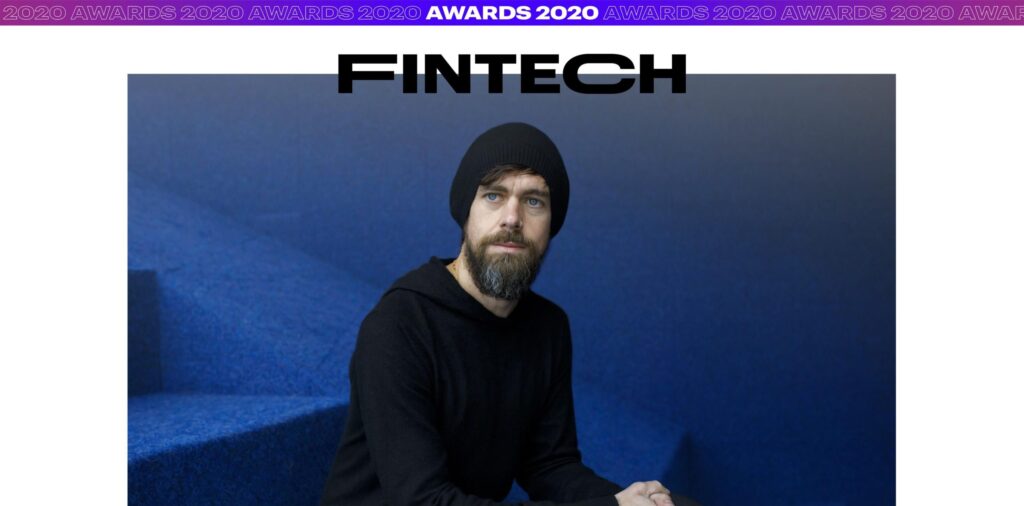[Forbes] Forbes Fintech Awards 2020: Jack Dorsey Gives Banks A Wake-Up Call

By Jeff Kauflin and Eliza Haverstock
This past year was a whirlwind for fintech. The pandemic hit many businesses like a hurricane, with lenders suffering the most damage. But as government stimulus checks hit bank accounts and consumers began buying everything online, some of the most popular personal finance apps and payments companies thrived. Digital banking startup Chime tripled its valuation in six months, reaching $14.5 billion in September.
For our inaugural Forbes Fintech Awards, we are highlighting the year’s standout products, people and firms—expect them to continue to exert influence in 2021 and beyond.
Best Product: Chime
Chime soared in 2020 by focusing sharply on low-to-middle-income customers and predicting their needs better than any other neobank. In March, Chime was valued at $6 billion. In April, it gave more than 500,000 customers an advance on their stimulus checks, leading to its best day ever for new-user signups. Two months later, it launched a secured credit card, which already has more than one million users. Today, it’s worth nearly $15 billion, and CEO Chris Britt is a billionaire.
Most Intriguing Newcomer: HMBradley
The Los Angeles-based startup launched in late 2019 with a tiered checking and savings account. If you save 20% of your paycheck, you earn 3% interest. If you save 15%, you earn 2%, and so on. Those rates haven’t budged in a year even as interest rates have fallen off a cliff. In just 12 months, it has attracted $100 million in customer deposits. It rolled out a credit card in 2020, and CEO Zach Bruhnke says car loans and mortgages are next.
Disruptive Innovator: Affirm
Affirm has changed the way Millennials finance everything from Peloton bikes to Swatch watches, persuading them to pay in installments rather than accumulate revolving debt. “They’re stealing market share from traditional credit cards,” Forbes Awards judge Dan Rosen says. Affirm’s transaction volume went from $2.6 billion in 2019 to $4.6 billion in 2020, and it’s slated to go public in the coming weeks. Australian startup Afterpay and Sweden’s Klarna have smaller U.S.-based businesses than Affirm, but through their global expansion, their valuations have surged to $20 billion and $11 billion, respectively.
Outstanding Firm: Propel
The Brooklyn-based startup stood out in 2020 for its work in delivering $1,000 pandemic grants to low-income Americans. Nonprofit GiveDirectly raised the money and led the initiative while Propel identified qualified recipients among the two million users of its free Fresh EBT app, which helps people check their food stamp balances. The cash was shipped to Fresh EBT users in the poorest zip codes hardest-hit with coronavirus cases—including New York, the San Francisco Bay Area, Seattle and New Orleans. So far, it has transferred no-strings-attached payments to about 176,000 families.